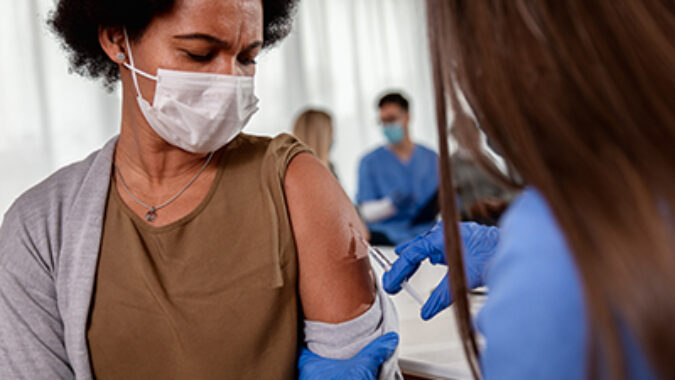Johnson & Johnson announced Tuesday it has submitted data to the U.S. Food and Drug Administration (FDA) in support of an emergency use authorization for its COVID-19 vaccine booster shot for individuals 18 years of age and older.
The submission includes recent results from a late-stage study that found the J&J COVID-19 booster given 56 days after the primary dose provided 94% protection against symptomatic COVID-19 and 100% protection against severe disease 14 days post-booster vaccination. The FDA has scheduled an Oct. 15 meeting of its expert advisory committee to discuss whether to authorize a J&J booster shot.
“Our clinical program has found that a booster of our COVID-19 vaccine increases levels of protection for those who have received our single-shot vaccine to 94%,” said Mathai Mammen, M.D., Ph.D., global head of Janssen Research & Development, J&J. “We look forward to our discussions with the FDA and other health authorities to support their decisions regarding boosters.”
J&J said it plans to submit the data to other regulators, the World Health Organization (WHO) and National Immunization Technical Advisory Groups (NITAGs) worldwide to inform decision-making on local vaccine administration strategies, as needed.
Over 15 million Americans have received the single-dose J&J vaccine, according to the latest data from the Centers for Disease Control and Prevention. The vaccine was developed by Janssen Pharmaceutical Companies, a Belgium-based company wholly owned by J&J.
Last month, J&J released data reinforcing the strong and long-lasting protection provided by a single dose of its COVID-19 vaccine. The largest real-world evidence study for a COVID-19 vaccine reported to date in the U.S. demonstrated stable vaccine effectiveness of 79% for COVID-19-related infections and 81% for COVID-19-related hospitalizations, J&J said.
“Our single-shot vaccine generates strong immune responses and long-lasting immune memory,” Mammen said. “And, when a booster of the Johnson & Johnson COVID-19 vaccine is given, the strength of protection against COVID-19 further increases.”
The Biden administration has sought a broad roll out of COVID-19 boosters, but some infectious-disease experts have questioned the need, citing data that shows the original vaccines continue to protect people against severe disease even if they don’t stop all infections.
The FDA recently authorized a third dose of the two-dose Pfizer-BioNTech vaccine for those 65 and older, people at high risk of severe disease and others who are regularly exposed to the virus. Pfizer had sought approval of the booster for anyone 16 and older, but the FDA said the booster should be limited to those whom it would help most – older individuals and those at high risk.
Moderna, which also makes a two-dose COVID-19 vaccine, submitted an emergency use authorization application for its booster shot last month. The FDA has scheduled a meeting to discuss the Moderna application on Oct. 14.

